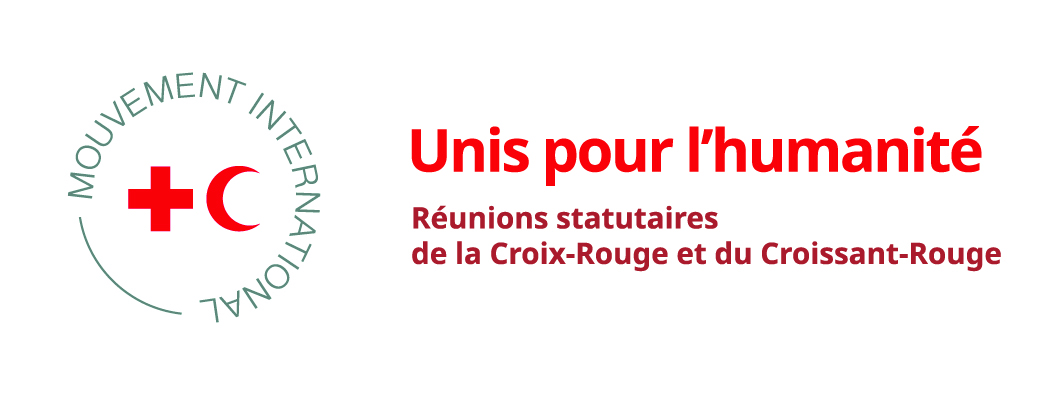Mesures prises:
The Canadian Red Cross (CRC) aims to protect the dignity and lives of vulnerable people affected by armed conflict by ensuring respect for International Humanitarian Law (IHL) in Canada and around the world through education, training and advocacy. The overarching goal of CRC’s IHL Program is the creation of a culture in Canada that values and understands IHL and Humanitarian Principles.
From December 2019-June 2024, CRC has disseminated IHL to government bodies, the armed forces, academia, policy makers, teachers and youth. CRC has hosted and participated in a number of events across the country to help educate Canadians on the importance of IHL and to foster dialogue on contemporary challenges and debates.
IHL promotion activities between December 2019-June 2024 have included:
IHL Conferences: Conferences were held in partnership with post-secondary institutions across Canada. Select conference themes included the Protection of Vulnerable Populations in Armed Conflict; Healthcare, COVID-19 and Armed Conflict; Armed Conflict & the Environment; Direct Participation in Hostilities; AI and IHL; Gender and Armed Conflict; War in Cities; Cyber Security; and Disability and IHL. Representatives from the Office of the Judge Advocate General participated in many of the IHL Conferences as speakers/ panelists as did other experts from across Canada.
IHL Summer School and Online Learning Series: The annual bilingual IHL Summer School held in partnership with the Human Rights Research and Education Centre at the University of Ottawa, was held in 2022, 2023, and 2024. In 2020 and 2021, the Summer School was cancelled due to the COVID-19 pandemic. In its place, CRC hosted a week-long online learning series titled, IHL NOW/ DIH Maintenant in 2020 and 2021. The events featured 10 online lectures (5 in French, 5 in English).
Teacher Trainings: Since December 2019, CRC provided ongoing humanitarian education workshops for secondary school teachers. The workshops provided instruction for teachers on the use of the following humanitarian education resources in the classroom: Humanitarian Education Guidebook, Exploring Humanitarian Law Toolkits, Canada & Conflict and Forced to Fight. During the same time period, CRC also provided humanitarian education presentations for teacher professional development days in collaboration with faculties of education, school divisions and teacher societies. CRC also launched a fourth storyline Forced to Fight/ Pris au piège, which is an interactive, choose-your-own-adventure resource developed for youth and teachers in collaboration with Canadian high school teachers for use in the classroom. CRC also developed the Humanitarian Education Curriculum Guidebook: Lessons and Resources for Teachers and Students in 2022. CRC also hosted a Cross-Canada Online Youth Action Summit in 2023 and 2024 for high school teachers and students.
Engagement with the Military: CRC provided Intermediate Law of Armed Conflict trainings to the Canadian Armed Forces. It also participated in pre-deployment training for UN Military Operations and provided lectures for various military training courses. Several of these trainings are conducted with ICRC. CRC also hosted an annual workshop with the Halifax International Security Forum (HISF) Peace with Women Fellowship, comprised of senior, active-duty, female military officers from NATO member and partner countries. In addition, CRC provided ongoing “Intro to IHL and use of force” trainings to the Royal Canadian Mounted Police (RCMP) in partnership with ICRC.
Internal Training: CRC also worked to promote IHL through internal capacity building trainings. Sessions were provided for various CRC domestic and international operations staff and at Red Cross Red Crescent Movement events including during IMPACT training weeks, youth volunteer foyers and ICRC led events.
Classroom lectures and presentations: Since December 2019, CRC participated in over 50 classroom lectures at academic institutions, including law schools and faculties of education. Lecture topics included international law, IHL and Human Right Law, neutral and impartial humanitarian action, displacement as a result of conflict, and conflict-based sexual violence.
Academic Webinars: Eight academic webinars were held online on the following topics: Displacement and Migration, Conflict-Related Sexual Violence, Non-State Armed Actors & IHL Compliance, Protection of Civilians, Protection of Cultural Property, and Armed Conflict and the Environment. Attendees included students, members of the Canadian Armed Forces, school teachers, academics and members of the general public.
Public Awareness: CRC worked to promote IHL through various public forums, including through the use of social media and other public platforms. Videos, graphics and content were produced for Facebook, LinkedIn, Instagram, Twitter, YouTube and TikTok to encourage public understanding of IHL principles. CRC also produced a newsletter drawing attention to IHL resources, relevant news articles and upcoming learning opportunities. The newsletter is sent to approximately 2500 subscribers. Further IHL promotion was done at public facing events hosted by civil society groups.
CRC also regularly publishes IHL related blog posts on its website. See for example: What does the law say about war and missing persons?; Education shapes attitudes on war; Armed conflict, insecure environments and disasters in the COVID-19 era; For people living in conflict zones, COVID-19 presents a dangerous threat; International Day Against the Use of Child Soldiers: What can be done?; and Seeking justice for survivors of gender-based crimes in war



